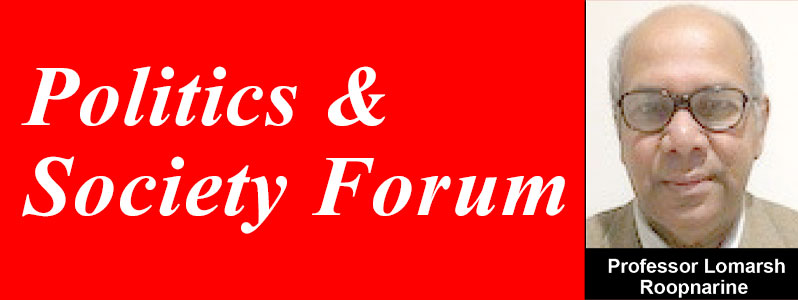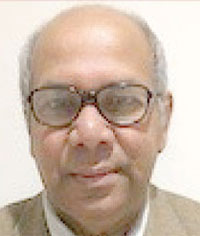FIJI, Australia and the Girmitiyas’ family have lost Professor Brij Vilash Lal, a scholar, politician, and innovator, on Christmas Day 2021, in his adopted home in Brisbane, Australia, after being banished from his land of birth, Fiji, by the military Bainimarama government for 12 years. Upon receiving this sad news via WhatsApp from Professor Farzana Gounder that the curtain came down on a remarkable individual characterised by brilliance and excellence, I asked her where she got the information of his passing. She assured me that the news was real. Like most who knew him, we were shocked and stunned, since I understand that he was active hours before his death, revealed by tributes flowing from across the globe. In every case, the echoing concern was, oh no, what happened!
For most of his 69 years of life, Professor Lal was an inspirational and influential figure in Girmitiyas studies, publishing numerous articles and books, as well as an open critic of the military regime in Fiji. In the former situation, he was an expert and international icon in indenture studies whose place in the academic community is secured and irreplaceable, while in the latter situation, Lal’s forced exile, based on the championing of democracy, was an injustice and a violation of human rights. Whatever the situation, a genius has fallen, and, I suppose, we will be poorer by his passing. We must, however, use his accolades, achievements, and aspirations to move on so much so that his legacy and his sterling contribution to humanity do not end up in vain. His lantern of leadership will continue.
Brij, as he is fondly known by his wife Padma, family, and the wider community, was born in a farming village in Tabia, Vanua in Fiji. Brij’s ancestral family were indentured servants brought from India to the island during the period from 1879 to 1917. Despite the trappings of indentured servitude, Brij rose from his humble background to become a prominent professor across the pacific region, retiring at Australia National University. He received international recognition and awards, including one from UNESCO, for his prolific writing, development, and advancement of pacific studies as well as serving as the leader of the Opposition’s three-member Fiji Review Constitution leading to the 1997 Constitution. That is the life of a man who branched out of the indentured yards of Fiji to be a pioneer in the truest sense of the word, breaking new grounds wherever he went, whether in person or print. In this journey of accumulating academic wealth, I suspect, Brij enjoyed fewer financial benefits and lived a humble life so complemented by a magnificent and marvelous article he wrote four decades ago, tilted Kunti’s Cry, a woman who had to overcome the pangs of plantation abuse. Brij never gave up his roots and often spoke of his routes in life.
If ever there was a person born to study Girmitiyas, it was Brij. I am convinced that one can take Brij out of Tabia but not Tabia out of Brij. Outside his family environment, nothing seemed to please Brij more than when he could speak about Fiji and the world of Girmitiyas. In the words of Brij, “of the conferences I attend and present papers, the ones on Girmitiyas are most satisfying” I concur. I will never forget the conversations I had with Brij at conferences that ventured out in myriad directions, and eventually honing into where we have come from and where we are going. He remained flattered by my one statement to him in Mauritius – “whenever we meet, we tend to get in the spirit of things”. Brij would turn this statement in appealing ways shown in some of his keynote addresses. In his last email to me, he said that he was in high spirits and hoped that I was too. Brij had a wonderful sense of humour. He loved a good joke and would laugh heartily, exposing all his teeth. He was a small man with a big heart. Brij and Brinsley Samaroo are the natural brains behind Girmitiyas studies.
If there is any consolation regarding Brij’s death, it is that we will all have to follow that step to the unavoidable destination, the final resting place. The time is the only difference. However, and while many will charter a somewhat similar course of life, I suspect, few would match this giant of a man, this scholar, this political activist, this teacher, and this principled individual. How could we not emulate his achievements? In the final analysis, I think Brij might have heard these words from the Almighty, come home my son you have laboured hard and long in my kingdom, you are tired, nestle in my arms, feel the affection from blood to yours, close your eyes and rest now. Your family is safe. My condolences to Brij’s family, his wife, Dr. Padma, his two children, his siblings, and his grandchildren and his relatives (lomarsh.roopnarine@jsums.edu).



.jpg)









